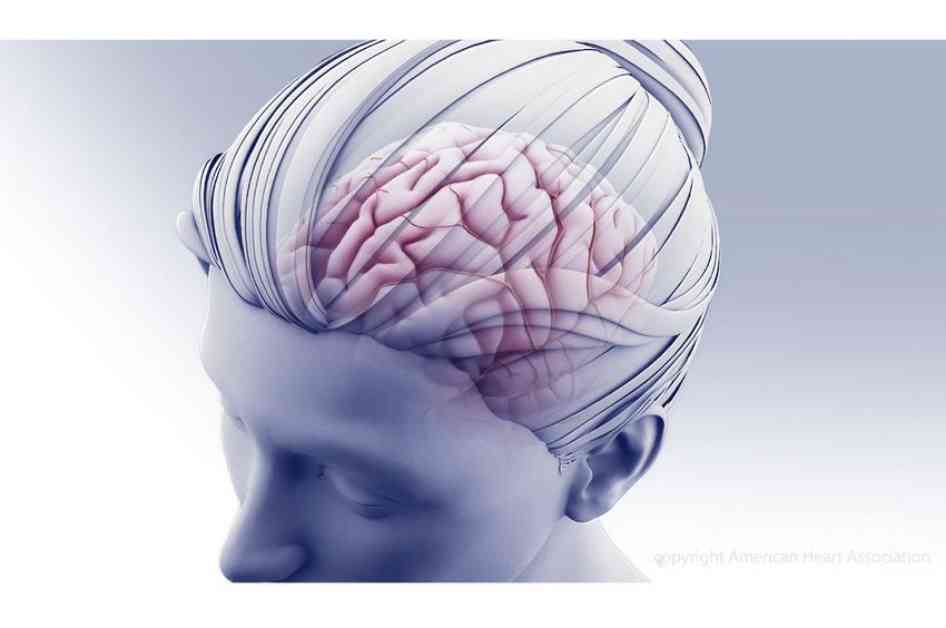Nurses’ Vital Role in Supporting Mental Well-Being After Stroke
As the second leading cause of death worldwide, strokes have a significant impact on individuals’ lives, not only physically but also mentally. Research indicates that a substantial percentage of stroke survivors experience psychosocial symptoms such as depression, anxiety, stress, fatigue, and a decreased quality of life during their recovery. These emotional and social health challenges can greatly affect a patient’s overall well-being and quality of life post-stroke.
The American Stroke Association emphasizes the critical role that nurses play in addressing and supporting the mental health needs of stroke survivors. A new statement titled “Nursing’s Role in Psychosocial Health Management After a Stroke Event” highlights the importance of improved screening and assessment for psychosocial needs to provide optimal patient care. The statement, published in the Association’s peer-reviewed journal Stroke, underscores the necessity for nursing interventions to reduce the negative effects on a patient’s mental well-being after a stroke.
Understanding the Impact of Psychosocial Symptoms After Stroke
Depression, stress, anxiety, fatigue, and quality of life are key psychosocial factors that significantly impact stroke survivors’ mental health. Depression, affecting approximately 30% of stroke survivors, is particularly common within the first three months post-stroke. Symptoms of depression may include persistent sadness, loss of interest in activities, difficulty concentrating, changes in sleep and appetite, and irritability. Post-stroke depression can worsen cognitive and functional recovery, increase the risk of death, and lead to another stroke.
Stress and post-traumatic stress disorder (PTSD) affect about one in six stroke survivors, contributing to additional health issues such as anxiety and poor medication adherence. Screening stroke patients for stress and PTSD is crucial during hospitalization, rehabilitation, and outpatient follow-up visits. Nursing interventions focusing on stroke education, self-management strategies, and coping styles can help lower patients’ distress and improve their recovery outcomes.
Anxiety is another prevalent psychosocial symptom after stroke, with a frequency ranging from 20%-25% in the first months post-stroke and increasing to 32% over the year. Younger age at the time of the stroke, lower income, social isolation, and previous mental health conditions are risk factors for developing anxiety. Standard screening for anxiety and prompt detection can lead to early treatment, better patient engagement, and improved recovery. However, more research is needed on anxiety interventions specific to different types of strokes.
Post-stroke fatigue, most common within the first six months post-stroke, can significantly impact a patient’s physical and mental energy levels, interfering with daily activities. Women and individuals with depression, sleep problems, anxiety, or multiple health conditions are at higher risk for post-stroke fatigue. Effective management strategies for post-stroke fatigue are still under research, but interventions focusing on improving physical fitness may help prevent or reduce fatigue and other psychosocial health issues.
Quality of life is a crucial aspect of a stroke survivor’s recovery journey, particularly after a severe stroke. Factors such as physical strength, speech, depression, anxiety, ability to return to work, and social activities contribute to a patient’s quality of life post-stroke. Conditions like chronic pain can negatively impact recovery and independent living. Physical activities that involve interpersonal engagement, such as yoga and tai chi, have shown positive effects on improving patients’ quality of life. Nurses can play a significant role in connecting stroke survivors to social services, support groups, and community-based organizations to enhance their post-stroke quality of life.
The Role of Nurses in Supporting Mental Well-Being After Stroke
Nurses are at the forefront of providing essential care and support to stroke survivors as they navigate the physical and mental challenges post-stroke. Creating a safe and therapeutic environment for patients, offering comprehensive education on psychosocial health, and ensuring early detection and treatment of symptoms are key responsibilities of nurses in managing emotional and social health after a stroke. By engaging stroke survivors and their caregivers, nurses can empower individuals to be aware of psychosocial conditions and ways to address them effectively.
Moreover, nurses can support stroke survivors through education on symptom recognition, prevention strategies, and treatment options such as medication management and cognitive behavioral therapy for depression. They can also provide self-management strategies, mindfulness techniques, and coping mechanisms to help lower patients’ distress levels and improve their overall well-being. By promoting patient engagement and offering personalized care, nurses contribute significantly to enhancing post-stroke recovery outcomes.
Addressing Health Inequities and Social Determinants of Health After Stroke
It is essential to acknowledge that stroke outcomes vary among individuals from different racial and ethnic groups, highlighting existing health inequities in stroke care. Social determinants of health, including structural racism, socioeconomic status, inadequate housing, and limited access to health care and mental health services, can influence a stroke survivor’s recovery journey. The stroke care team plays a vital role in addressing these health inequities by implementing targeted interventions and customized treatments to improve mental health support and overall care coordination for at-risk populations.
Research is ongoing to better understand how to support psychosocial well-being for individuals after a stroke, enabling them to return to their routine activities and improve their quality of life. By advocating for equitable health and stroke care in all communities, the American Stroke Association aims to reduce disparities in stroke outcomes and promote longer, healthier lives for all individuals. Through innovative research, public health advocacy, and lifesaving resources, the Association continues to work towards its mission of preventing, treating, and beating stroke.
Conclusion
In conclusion, nurses play a crucial role in addressing the mental health needs of stroke survivors, supporting them through emotional and social health challenges post-stroke. By providing education, screening, assessment, and personalized care, nurses can significantly impact patients’ recovery outcomes and quality of life. It is essential to continue research efforts to develop stroke-specific mental health screening tools and evidence-based interventions to improve psychosocial health for stroke survivors. By promoting mental and emotional well-being, nurses contribute to a holistic approach to post-stroke care, ensuring optimal recovery and improved quality of life for individuals affected by stroke.


















